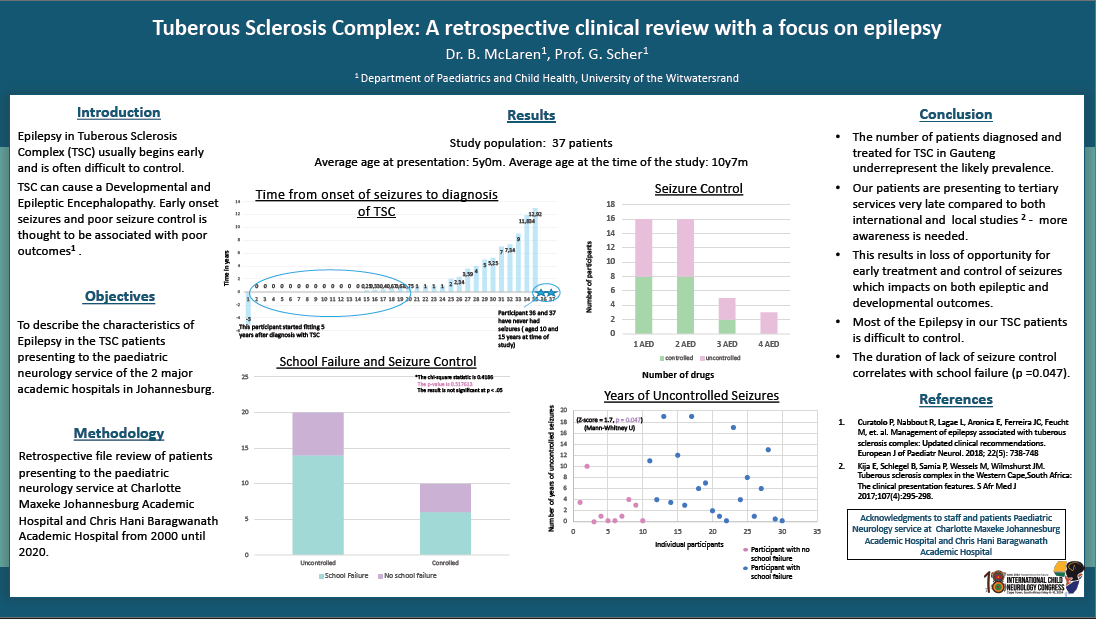Tuberous Sclerosis Complex: A Retrospective Clinical Review With A Focus On Epilepsy
Introduction: Tuberous Sclerosis Complex (TSC) is a neurocutaneous syndrome and multisystem disorder caused by a mutation in TSC1 or TSC2 genes. One of its main features is epilepsy, which is often difficult to control and these patients are at risk for developmental and epileptic encephalopathy. Objectives: To describe the characteristics, natural history and associations with epilepsy in the paediatric TSC patients presenting to the paediatric neurology service in Johannesburg. Methods: Retrospective file review of TSC patients who presented to the Paediatric Neurology service from 2000 until 2020. Results: 37 TSC patients were identified in our service. 84% Of TSC patients present with seizures as the presenting feature. The median age of presentation is five years, and the median time from onset of seizures to diagnosis is nine months, concerningly, a large number of patients present only after a number of years of uncontrolled seizures (range 0-12 years). 49% Of patients with epilepsy were uncontrolled. 89% Of patients who were controlled, were on one or two antiepileptic drugs, polypharmacy did not improve epilepsy control. Number of years of uncontrolled seizures correlated with school failure (Z= 1.7, p=0.047). Conclusions: The number of patients diagnosed and treated for TSC in Gauteng underrepresent the likely prevalence. Many patients present to our service very late. This results in loss of opportunity for early treatment and control of seizures which impacts on both epileptic and developmental outcomes – demonstrated in this study by the correlation of the duration of poor seizure control and poor academic performance
Britta McLaren
Morningside Mediclinic
South Africa
Gail Scher
The University of the Witwatersrand
South Africa
